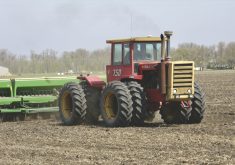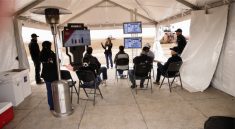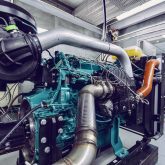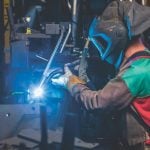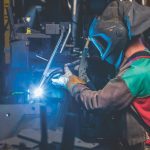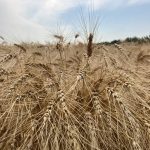Samuel Allen was blunt. “Today’s world is filled with uncertainty — fiscal, economic, and political uncertainty — that breeds extreme caution, disrupts thoughtful planning, and is generally bad for business,” the John Deere chairman and CEO wrote in the company’s 2013 annual report.
Those words from December of last year now seem profoundly prophetic, given recent events in Ukraine and their potential impact on global trade. The question for ag equipment manufacturers such as John Deere that have made substantial investments in Russia is how they proceed from here on.
Read Also
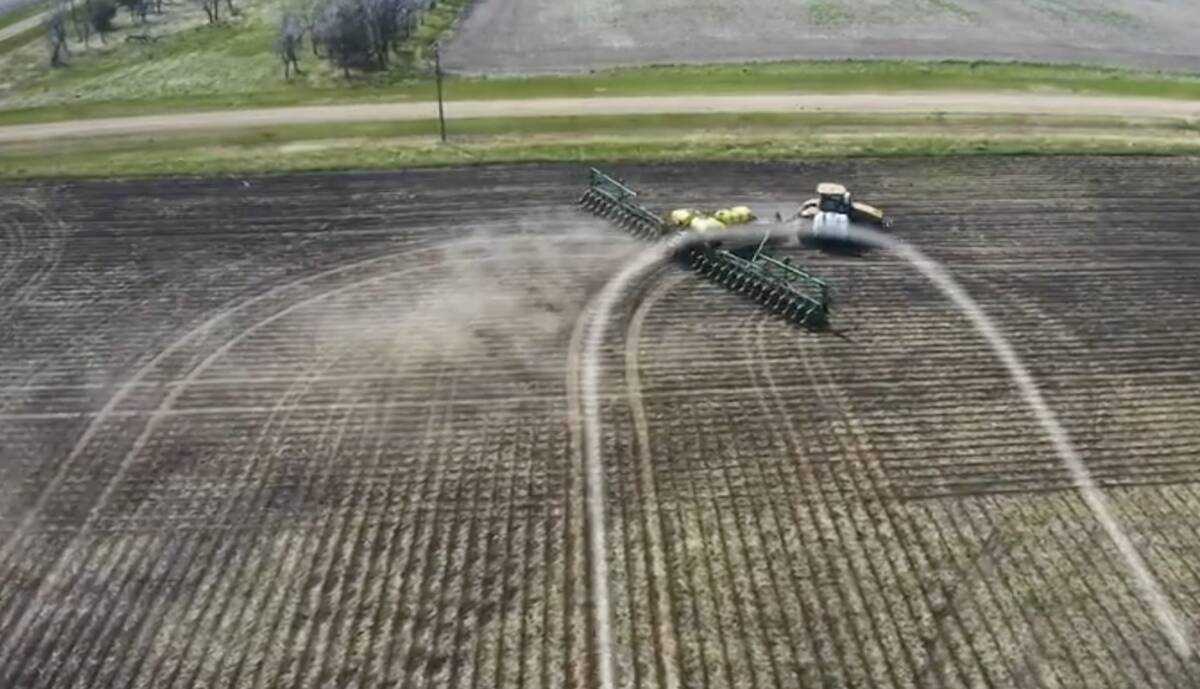
Are farmers ready for the digital ag revolution?
How farmers are using technology to remain competitive, find opportunities and meet challenges.
Until Putin went rogue on Crimea, Russia was seen by ag equipment manufacturers as a land of opportunity. Russia was the “R” in the BRIC group of countries that also includes Brazil, India and China, and it was expected that its economic growth would be on a massive scale.
According to John Deere’s latest market analysis, average GDP growth in the CIS states including Russia in 2012 was 3.4 per cent. It dropped in 2013, sinking to 2.1 per cent, but had been forecast to jump again this year.
While not anywhere near the 8.2 per cent in Brazil or the 6.0 per cent that China chalked up in 2013, growth in the former Soviet states still outpaced the 1.9 per cent the U.S. experienced. So the whole region remained a market with above-average potential.
Plus, from an agricultural perspective, there are other bullish statistics. Here’s a big one. Of the 1.96 billion hectares of arable land in the CIS, only 560 million are currently being utilized.
Here’s another. “Western-style” farm equipment is currently being used on less than 25 per cent of CIS farms.
It’s easy to see why farm equipment manufacturers are champing at the bit to get into these markets.
Germany’s ag manufacturing sector has so far taken best advantage of the opportunities, becoming the largest exporter of farm equipment to Russia. But recent events in Crimea have left German manufacturers on edge. A headline in the German ag engineering magazine Der Eilbote in March seemed to sum up the thoughts of industry executives interviewed in the article: “This is poison for business,” is the English translation.
According to a 2012 report published by VDMA, the German Engineering Federation, that country sent 694 million euros worth of equipment to Russia, which meant a real boost for Germany’s economy.
The VDMA report also tallied the size of farm machinery exports to Russia from other countries. In that same year, it says, Italy delivered 82 million euros’ worth of iron, France 69 million, Poland 58 million, and the Netherlands 92 million.
North American companies were cashing in too, with U.S. firms sending over 215 million euros’ worth, and Canadian companies shipping farm machinery to Russia in 2012 worth 116 million euros (C$176 million).
- More Country Guide: Deere posts higher-than-expected profit, trims forecast
Despite those numbers, foreign-based manufacturers have faced problems in fully capitalizing on the potential in Russia as well as in Eastern Europe and the CIS states. Deere’s experience is a good example. In 2008 as the global farm commodity price boom kicked off, the brand realized net sales of US$1.9 billion in the region. Since then, however, sales have fallen off significantly, struggling to get back to just $1.6 billion in fiscal 2013.
The trouble in Russia, in part, is that despite its recent admission into the WTO, its leaders haven’t really been playing nicely when it comes to trade. Government subsidies along with punishing import tariffs and quotas designed to promote domestic manufacturing have taken their toll on ag equipment imports, even though they are still reported to account for more than two-thirds of all equipment sales there.
Despite protests from foreign governments and industry about unfair trading practices, Russian officials haven’t given much ground.
To escape those excessive tariffs and take advantage of the built-in-Russia label that makes machinery eligible for a 15 per cent government purchase subsidy, many brands have invested in manufacturing facilities, announcing either sole or joint manufacturing ventures with indigenous companies in Russia over the past several years.
Of the seven new factories John Deere opened in 2013, one is in Orenburg, Russia. It now churns out seeding and tillage equipment, adding its output to another Deere plant in Domodedovo that builds tractors and combines. Back as far as 2009, Deere announced its intention to invest US$500 million in facilities inside Russia.
In an investor relations document, Deere describes that investment as part of an effort “to capture anticipated tailwinds by attracting more customers to the John Deere experience across our six key geographies.” Russia is one of those “key geographies.”
In 2010 CNH, parent company of Case IH and New Holland, jumped into the Russian market with an investment in a joint facility with the Russian heavy truck manufacturer KAMAZ. That effort, which created the CNH-KAMAZ company, represented a US$70 million investment designed to produce selected Case IH and New Holland tractors and combines.
In what might be the worst possible timing, AGCO proudly announced in late February it had embarked on a joint venture with Russian Machines (RM), an established farm equipment manufacturer, to introduce the Massey Ferguson brand to that country. The joint venture will see assembly of MF tractors start at an RM facility near Moscow.
“We expect to continue… devoting significant resources to enhance our presence in the CIS region, China and Africa,” said AGCO’s CEO Martin Richenhagen in the company’s fourth-quarter report for 2013, written well before the Crimean crisis.
With economic sanctions and counter-sanctions imposed, and others likely in future, the risk associated with Russian investment is growing. But in a strange twist, one equipment brand may face a potential risk if it does not move more assets there.
That is Winnipeg-based Versatile, whose majority owner is the Russian combine manufacturer Rostselmash Ltd. Versatile (Buhler Industries) has remained incorporated in Canada with its stock trading on the TSX.
According to a Moscow Times article, Putin has demanded Russian-owned foreign corporations re-register their operations in the Motherland and pay taxes there. According to a Reuters report in March, he told corporate leaders, “this is also in your interests” (although the Moscow Times translation differs slightly). Putin called it “deoffshorization” during a state-of-the-nation address in the State Duma, apparently preparing the country’s economy for a hunkering down in the face of western economic retaliation.
One of the long-running factors that had been limiting farm machinery sales growth inside Russia was the relatively tight availability of capital. With the Russian stock market’s main MICEX index down 13 per cent the day after Crimean annexation, there is now even less capital available to finance purchases. And with the ruble hitting an all-time low, plus a sudden 1.5 per cent interest rate hike by Russia’s Central Bank to bolster it, financial conditions alone are likely to hurt farm equipment sale.
With all this, there is also now a growing anxiety among some of the country’s elite. A few editorials in Russian newspapers are expressing disapproval, despite a notoriously strangled free press.
Writing in the Moscow Times, Vladimir Ryzhkov, a State Duma deputy from 1993 to 2007, and now a political analyst, criticized Putin’s behaviour. “From now on, Russia’s entire policy can be summed up in a single word: unpredictable,” he wrote.
Deere’s Allen agrees, saying in February, “… it’s clear we live in an age of uncertainty.”
When it comes to Russia in 2014, that’s true in spades.




